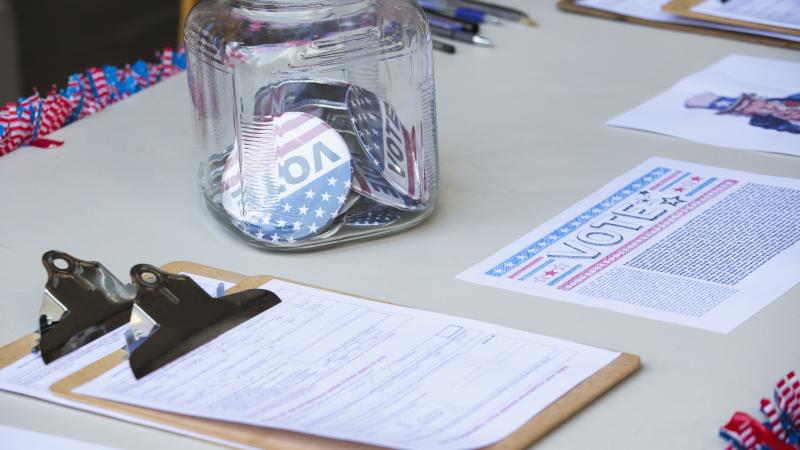Tax bill held up in Senate over GOP objection to tax filers without income getting Child Tax Credit
Senate Republicans have also raised concerns about the lack of provisions to fully pay for the 10-year cost of the package.
A bipartisan tax package that passed in the GOP-led House that expands the Child Tax Credit is still held up in the Democratic-led Senate after a key Republican raised objections to allowing tax filers who have children to qualify to receive the credit even if they don't earn any income.
There were 47 Republicans who voted against the bill in the House on Jan. 31. It ultimately passed after 88 Democrats and 169 Republicans voted in favor of the measure.
Under the legislation that is now under consideration in the Senate, the CTC would rise from $2,000 per child to $3,600 and tax filers would not need to earn any income during the tax year to claim the credit, which would result in a payment to the filer.
Conservatives in Congress have been vocal about how the bill does not bar illegal immigrants who file tax returns from claiming the credit for their children. In addition, some Republicans have raised concerns about the lack of provisions to fully pay for the 10-year cost of the tax package.
The Tax Foundation previously told Just the News that the cost of the package, formally titled the Tax Relief for American Families and Workers Act, could balloon to $1.5 trillion over the next decade, driven by the expanded CTC.
"The Joint Committee on Taxation (JCT) properly scored the bill’s temporary tax provisions as written in the bill. However, the fact that policymakers would be considering only temporary tax policy through 2025 masks the larger long-term costs if the changes are eventually made permanent as many would like to see happen," said Garrett Watson, a senior policy analyst from the Tax Foundation.
"In fact, it would cost between $700 billion and $1.5 trillion over ten years to make the tax deal permanent, depending on how much of the underlying current law child tax credit (CTC) we include in a permanency package. That’s much more than the gross cost of the temporary provisions being considered now (which is about $80 billion) and would require additional offsets if we want to avoid raising the deficit," he added.
Senate Finance Committee Ranking Member Mike Crapo, R-Id., said in a statement that he would not be pressured to approve of the tax package just because it passed the GOP-led House.
“Efforts to pressure Senate Republicans to rubber stamp the Wyden/Smith tax deal have been counterproductive," he said in February. "I remain concerned the CTC provisions undermine the work requirement and represent a significant shift – described by some Democrats as a down payment – to transform the CTC from primarily working family tax relief into a government subsidy. Allowing individuals to receive a refundable credit when they have zero annual earnings – as the prior year’s earnings provision allows – is a departure from longstanding policy tying the CTC to work."
Crapo also said that "more than 90 percent of the bill’s CTC benefits accrue to taxpayers who will not owe a single dollar of federal income tax – and the 10 percent allocated to those who do will likely not see that relief until the 2026 tax filing season."
He indicated at the time, that negotiations were ongoing. Since then, an agreement has not been announced and Senate Majority Leader Chuck Schumer hasn't scheduled a vote on the legislation.
“Notwithstanding my stated concerns, Chairman Wyden and Chairman Smith chose to move forward. Chairman Smith was correct in his analysis of what the House of Representatives could support. However, efforts to pressure the Senate to ‘take it or leave it’ and categorically dismiss a Senate regular order process have only amplified calls for changes and amendments. This was the risk of announcing a deal without my support and with no near-term path forward in the Senate," he said in the February statement.
“Despite the narrative being pushed by some, it is possible to disagree with the CTC policy in this bill and still support both maintaining pro-growth TCJA policies and an expanded CTC for working families. That is precisely why I am still working with my Senate colleagues to reach consensus on a path forward," he added.
In addition to the tax package that passed the House, Congress will have to reach an agreement on whether or not to extend the Trump-era tax rates for individuals and families, which expire at the end of 2025.
















